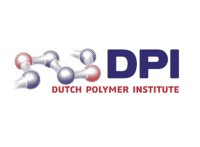Reliable Prediction of Residual Structural Integrity and Damage Evolution During Long-Term Fatigue in Thermoplastic Composites (SAFE-RIDE)
2018 - 2022
Summary:
Thermoplastic composites are the lightweight materials of the future, supporting the Automotive and Aerospace needs to reduce fuel consumption and extend vehicle range. They combine low weight with reduced processing costs and the possibility for end-of-liferecycling. Unfortunately, the long-term performance of these materials is currently very poorly predictable. As a consequence, composite parts are generally overdesigned and, therefore, not optimal in weight reduction. Safe-Ride aims at developing a new predictive design tool that improves the predictability of part performance substantially. The multiscale predictive model will be developed in a hybrid experimental/numerical approach with an extensive experimental program for characterization and validation.
Research objectives
- Development of an experimental methodology to explore and characterize the long-term performance of thermoplastic composites using short-term experiments
- Development of a hybrid numerical-experimental micromechanical approach toidentify macroscopic criteria for crack initiation and growth in UD and cross-plylaminates.
- Development of an analysis tool that allows for the assessment of damage-evolution
The project consists of two PhD-projects; one at the TU Delft, one at the UTwente. This interaction will enhance the reliability of the prediction and, hence, the practical applicability of the results. The intention is to develop a generic modelling and characterization approach to damage-evolution, applicable to all composite systems. The project will focus on carbon reinforced PEEK; mainly because preliminary results demonstrated that the intrinsic deformation response of PEEK can be captured effectively by the constitutive models previously developed at the TU Eindhoven. To ensure the generic character, some experimental effort will be directed to other systems, provided the availability of prepreg/tape. These composite systems can be chosen in collaboration with the industrial partners.
Staff:
Partners:


